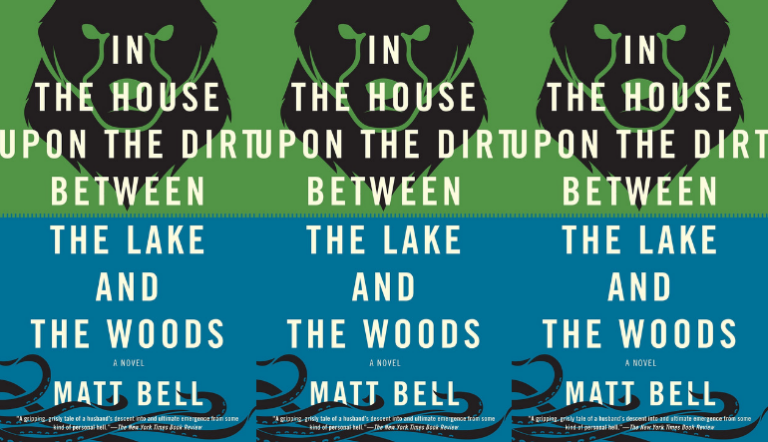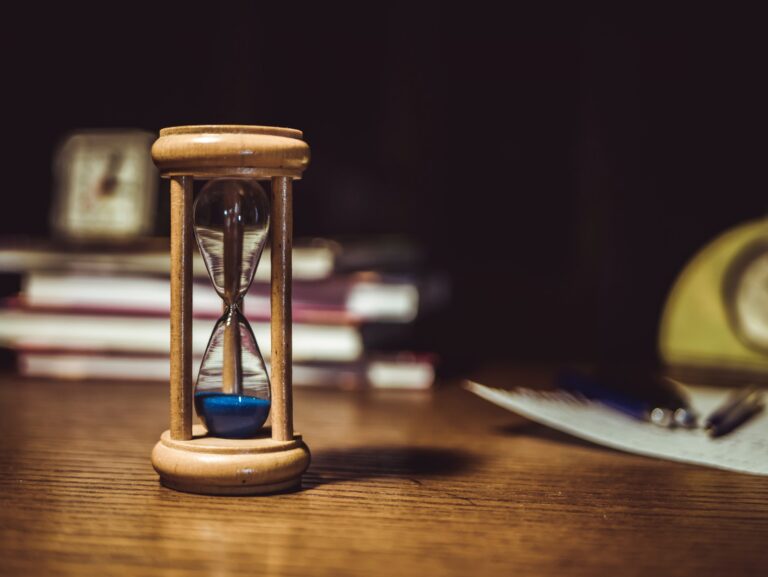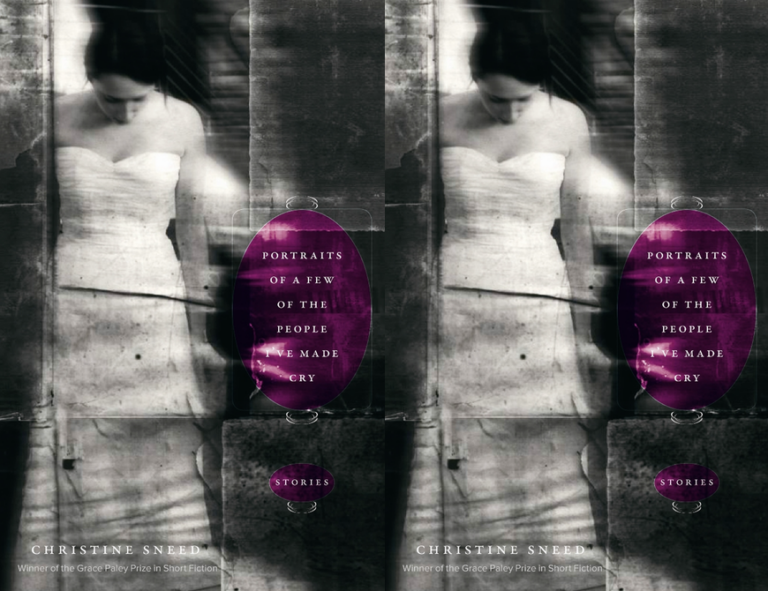Reading Cookbooks Like Novels: Bookseller Bonnie Slotnick
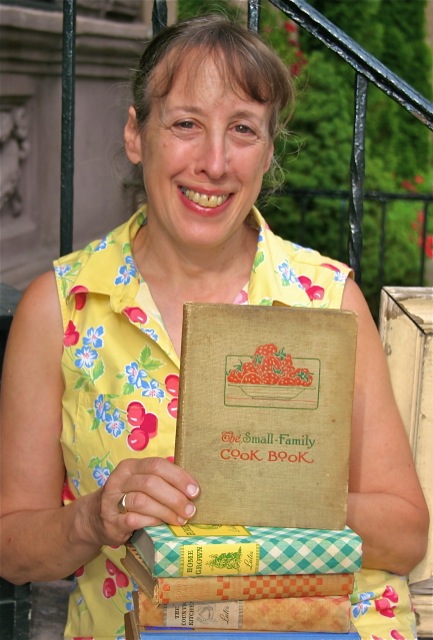
Looking for an international cookbook by horror-film actor Vincent Price? A 1920s etiquette manual suitable for Jay Gatsby? Or Alice B. Toklas’ infamous tome with its recipe for fudge spiked with hashish? Bonnie Slotnick‘s got you covered.
With a collection of some 4,000 out-of-print and antiquarian culinary titles stocked in her cozy shop in New York’s West Village, Bonnie takes a refreshingly hands-on approach to selling. Whether she’s locating a replacement copy of an out-of-state customer’s well-loved, well-worn family cookbook, giving a local chef expert historical advice, or offering a visiting dog a biscuit, she always provides a personal touch.
I sat down with Bonnie to chat about her love of culinary writing as she cleaned and prepped some new arrivals for sale.
You once said you read cookbooks like novels. I’m intrigued.
I suppose you could say I first read cookbooks like children’s books, because I started when I was little. My mother had a 1940s copy of The Settlement Cook Book. This was put together by Jewish women who ran a settlement house in Milwaukee; it was originally published in 1901 and sold as a fundraiser.
The cover design especially appealed to me: a row of little girl cooks parading toward a heart, with the motto “The way to a man’s heart” above the title. There were also illustrations of children cooking at the start of some chapters. I used to just sit and read that book over and over again. Some of the recipes used words that were German or transliterated Yiddish or otherwise exotic—syllabub, timbale, kumquat, ramekin. I didn’t look them up, I just savored the sound of them in my head.
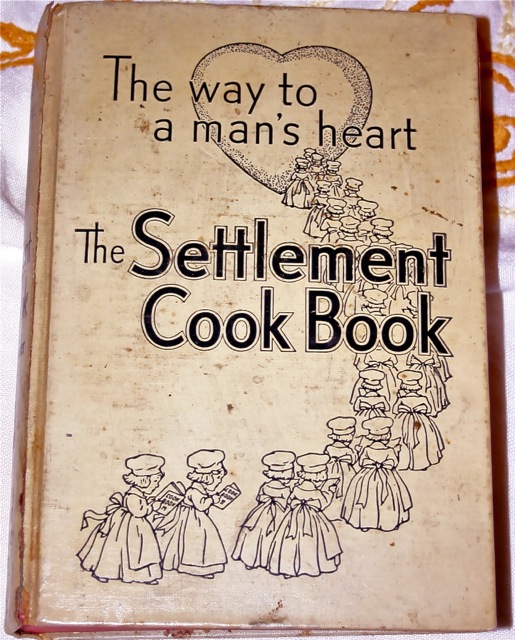
Some of my customers say they read their cookbooks like mysteries, and some even say they read them like porn! So cookbooks are more than utilitarian objects. It’s very relaxing reading about work that you don’t have to do yourself. You can enjoy reading about the preparation of a 20-course meal even if you use your kitchen stove to store your winter clothes! I think reading about food satisfies something that real food sometimes doesn’t.
Do you cook much yourself?
Not much. I’m single, and I live in a walkup studio, which makes it hard to have even one person over for dinner. But whatever I eat, I make sure it’s something I really love. This time of year I might have three ears of corn on the cob for dinner, and chocolate ice cream for dessert. That’s a feast. It’s great not to have to please somebody else.
I honestly don’t cook out of cookbooks much at all. I love to bake, but I mostly use family recipes or ones I’ve gotten from friends (which they in turn got from their own mothers). Recipes are not what cookbooks represent to me. I love them purely for reading and enjoyment and the aesthetic, the design. A lot of the books in my personal collection are illustrated.
And you have a background in illustration.
Yes, in fashion illustration, of all crazy things.
How did that lead you to bookselling?
I transferred to Parsons School of Design my second year of college, and while I turned out not to be professional-artist material, that move put me in the heart of the book trove that was Greenwich Village in the 1970s.
There was a used bookstore downstairs from the Parsons buildings, at the corner of Fifth Avenue and Thirteenth Street. It was called Dauber & Pine. And Mr. Dauber and Mr. Pine were both there. One was upstairs, the other downstairs—it was right out of Dickens.
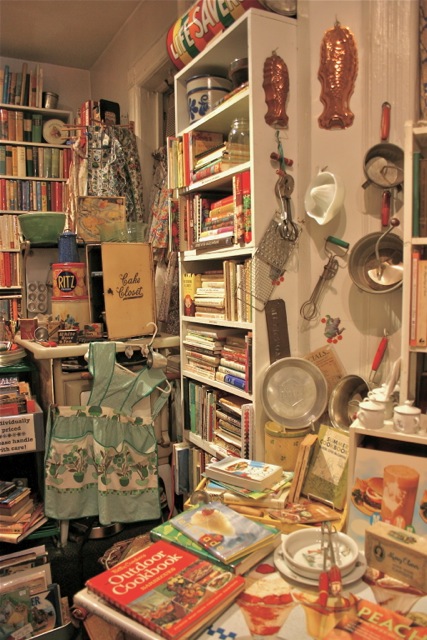
In the basement cookbook section—this was 40 years ago and I still get a frisson when I think about it—were a lot of books that had been de-accessioned by the home economics department of Columbia Teachers’ College. The Home Economics Movement was a big thing in the early 20th century, but by the 70s those books were outdated. They still had pockets and cards in the back, with the borrowers’ names written in purple ink. I just loved having that history coming along with the books, which had been in the school where some of these great women cookbook writers had taught.
So I fell into this lap of book-dom. I had a work-study job in the Parsons library, and after I graduated I worked there fulltime. I stayed right there in the neighborhood, buying books, handling books every day, learning to put on dust-jacket covers and repair torn pages. It dawned on me that it wasn’t art that I loved, it was books.
And you worked in cookbook publishing too.
Yes. I was at the Parsons library for five years and I just loved it, but eventually I was gently nudged out of the nest. After a few years of freelancing, I decided cookbook publishing was the place for me.
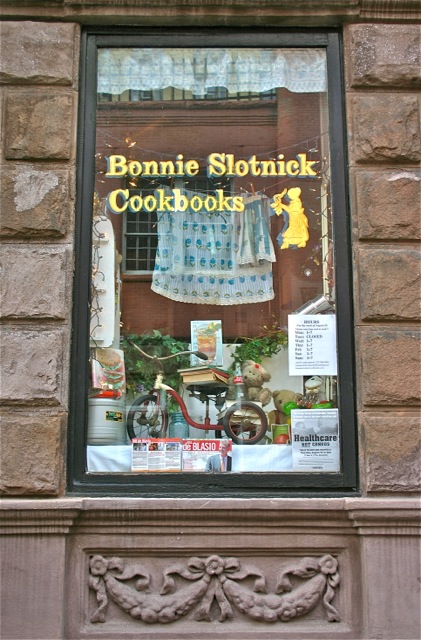
I got an editorial assistant position with a book packager in 1985, gradually working my way up to editor/writer over the next 16 years. Shortly after starting that job, I signed on as a book scout for the recently opened cookbook store, Kitchen Arts & Letters.
Back then, I was spending all my free time in used bookstores, browsing old cookbooks and housekeeping manuals and etiquette books, so I agreed to take a list of out-of-print books customers had requested at Kitchen Arts, and try to find them. And that grew into my running the out-of-print book department, as it were, for a store that otherwise sold only new titles. After 12 years there, I felt I just had to open my own shop.
During your 40 years in various aspects of the business, what’s the biggest change you’ve noticed in the book world?
The whole idea of collecting and owning books is changing. I was talking to another bookseller the other day and he said that whereas people used to accumulate a library as a way of establishing themselves and creating their identity, of showing other people “this is who I am,” nowadays people establish and share their identity via Facebook or Pinterest. You pick and choose photos of things that other people have put online, in effect saying, “Want to know who I am? Look at my bulletin board.” Why would you need to own books when you can do that?
Do you have an all-time favorite book?
The Country Kitchen by Della T. Lutes, published in 1936. I love the size of the book and its design. It reminds me of Little House on the Prairie and other library books of my childhood. It has a red-and-white cotton gingham cover with pasted-on title labels. The dust jacket is very simple, printed on pale-green paper—no glossy photos. This was the period when dust jackets were there to protect book covers, not to scream for attention on bookstore shelves.
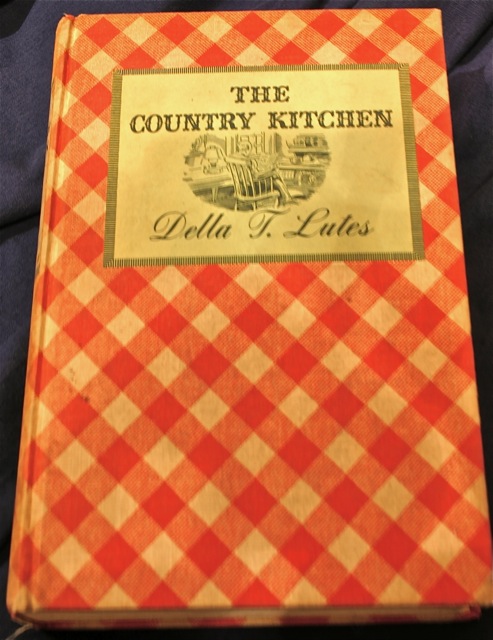
Set in the 1880s, it’s a memoir about Della Lutes’ childhood in Jackson, Michigan, near Ann Arbor. Della was an only child, and she and her parents inhabited a cozy, insular world. Her mother was always cooking something incredible, and her father constantly urging his wife to greater heights of culinary glory. There are recipes, but they’re folded into the text. You don’t feel compelled to cook them, but you want to read them over and over again. The story progresses through the year season by season, which is a type of book I love. You can pick it up right now, plunge into the autumn chapters and just lose yourself.
Bonnie Slotnick Cookbooks is located at 163 W. 10th St. in New York City. Open 1-7, six days a week (the day the shop is closed varies, so please call ahead). Tel.: 212-989-8962. Phone orders/inquiries are welcome. www.bonnieslotnickcookbooks.com.
